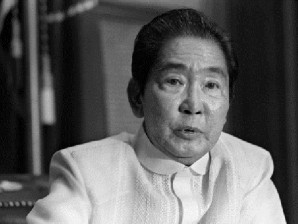SAN FERNANDO CITY—An official of the Commission on Human Rights (CHR) said schools and villages should start holding tributes to rights victims during the Marcos regime in their communities to ensure that lessons from martial law are not forgotten.
Myrna Jimenez, project manager of the Martial Law Files, said if the dead dictator Ferdinand Marcos is honored in his home province of Ilocos Norte on his birth anniversary every Sept. 11, then equal accolade should be given to victims of atrocities during his regime.
In previous years, Marcos’ birthday was declared a public holiday in his home province and his heirs spend the day keeping his feat etched in the memories of residents and students there.
This year, however, the Marcos family opted to observe the late president’s birthday as a regular working day and spend it with a series of activities that provide more youth engagement.
Ilocos Norte Gov. Imee Marcos had organized a debate among young Ilocanos as a tribute to her father, who was known to be one of the best debaters in his time.
“The event is a tribute… for inspiring Ilocanos, especially the young to let their voices be heard to achieve communal goals,” the governor said in a statement.
But Jimenez said the heroes of martial law deserve equal recognition.
Real heroes
“Schools and villages can be made to commemorate their heroism too,” she said during a recent consultation here.
She said the Human Rights Violations Victims’ Memorial Commission, which the CHR leads, has the power to direct schools to pay tribute to victims of rights violations during the Marcos regime.
The commission was formed under Republic Act No. 10368 (Human Rights Victims Reparation and Recognition Act of 2013).
The law also created the human rights victims’ claims board, an independent body tasked with receiving, evaluating, processing and investigating the applications for monetary compensation from the P10-billion fund that the government set aside from Marcos’ ill-gotten wealth.
Members of the claims board were in San Fernando City in La Union province in April as part of their public consultation on the implementing rules of the compensation and recognition law.
Dr. Aurora Parong, claims board member, said the law also paves the way for the inclusion of stories of the victims’ struggles in textbooks.
Age gap
Parong, also a rights victim, said students are clueless on the victims’ heroism and struggles during martial law. “We can include their stories in the local histories of towns and cities,” said Parong, who was jailed for more than a year for supposedly providing medical assistance to rebels during martial law.
The board members have been touring the provinces since April to solicit comments before they start processing compensation claims.
Lawyer Jacqueline Mejia, claims board member, said rights victims have only six months to file their claims or until Nov. 12 this year.
She said the board expects at least 40,000 victims to file their claims. Parong also appealed to claimants to look at the reparation as a token instead of a payout.
“This is not a payout. How can you pay for the sufferings, which, until now still linger?” she said.
She said the board wanted to avoid a situation where claimants would later compare notes and be envious as to the amount each had received.


